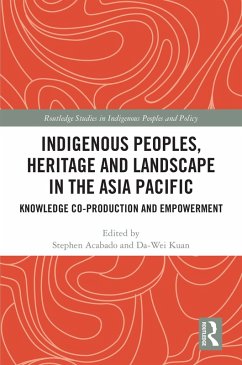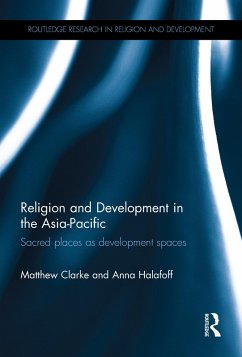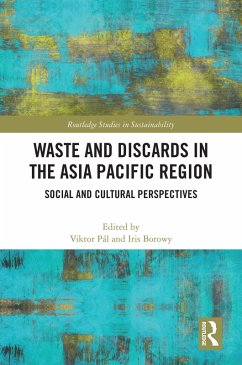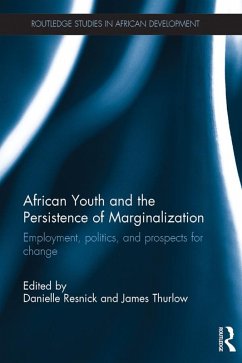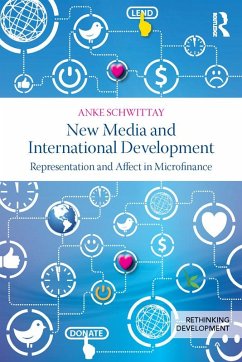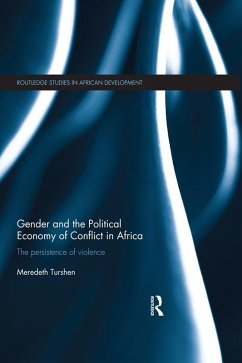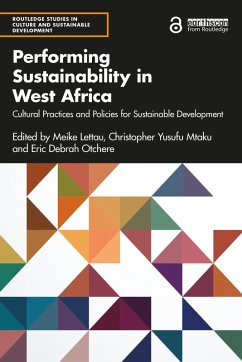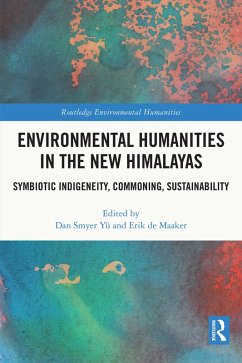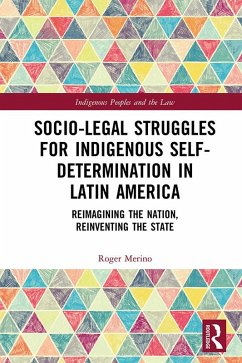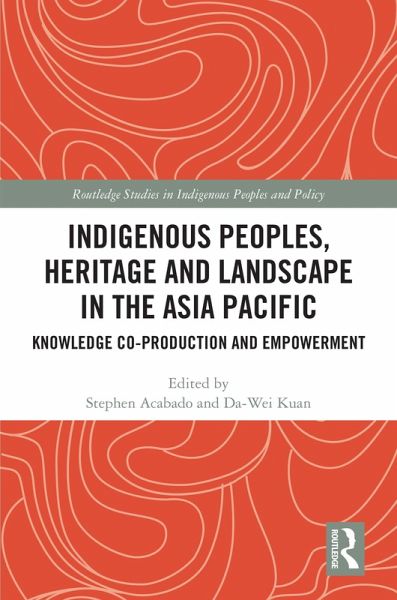
Indigenous Peoples, Heritage and Landscape in the Asia Pacific (eBook, ePUB)
Knowledge Co-Production and Empowerment
Redaktion: Acabado, Stephen; Kuan, Da-Wei
Versandkostenfrei!
Sofort per Download lieferbar
39,95 €
inkl. MwSt.
Weitere Ausgaben:

PAYBACK Punkte
20 °P sammeln!
This book demonstrates how active and meaningful collaboration between researchers and local stakeholders and indigenous communities can lead to the co-production of knowledge and the empowerment of communities.Focusing on the Asia Pacific region, this interdisciplinary volume looks at local and indigenous relations to the landscape, showing how applied scholarship and collaborative research can work to empower indigenous and descendant communities. With cases ranging across Indonesia, Thailand, Taiwan, the Philippines, Cambodia, Pohnpei, Guam, and Easter Island, this book demonstrates the man...
This book demonstrates how active and meaningful collaboration between researchers and local stakeholders and indigenous communities can lead to the co-production of knowledge and the empowerment of communities.
Focusing on the Asia Pacific region, this interdisciplinary volume looks at local and indigenous relations to the landscape, showing how applied scholarship and collaborative research can work to empower indigenous and descendant communities. With cases ranging across Indonesia, Thailand, Taiwan, the Philippines, Cambodia, Pohnpei, Guam, and Easter Island, this book demonstrates the many ways in which co-production of knowledge is reconnecting local and indigenous relations to the landscape, and diversifying the philosophy of human-land relations. In so doing, the book is enriching the knowledge of landscape, and changing the landscape of knowledge.
This important contribution to our understanding of knowledge production will be of interest to readers across Anthropology, Archaeology, Development, Geography, Heritage Studies, Indigenous Studies, and Policy Studies.
Focusing on the Asia Pacific region, this interdisciplinary volume looks at local and indigenous relations to the landscape, showing how applied scholarship and collaborative research can work to empower indigenous and descendant communities. With cases ranging across Indonesia, Thailand, Taiwan, the Philippines, Cambodia, Pohnpei, Guam, and Easter Island, this book demonstrates the many ways in which co-production of knowledge is reconnecting local and indigenous relations to the landscape, and diversifying the philosophy of human-land relations. In so doing, the book is enriching the knowledge of landscape, and changing the landscape of knowledge.
This important contribution to our understanding of knowledge production will be of interest to readers across Anthropology, Archaeology, Development, Geography, Heritage Studies, Indigenous Studies, and Policy Studies.
Dieser Download kann aus rechtlichen Gründen nur mit Rechnungsadresse in A, B, BG, CY, CZ, D, DK, EW, E, FIN, F, GR, HR, H, IRL, I, LT, L, LR, M, NL, PL, P, R, S, SLO, SK ausgeliefert werden.




